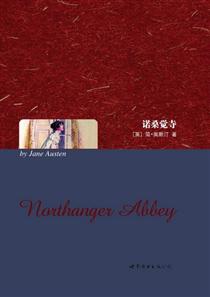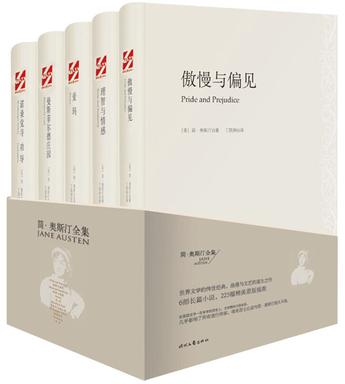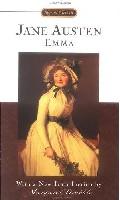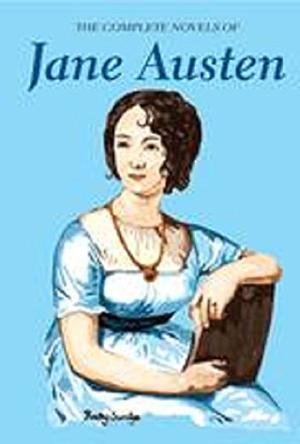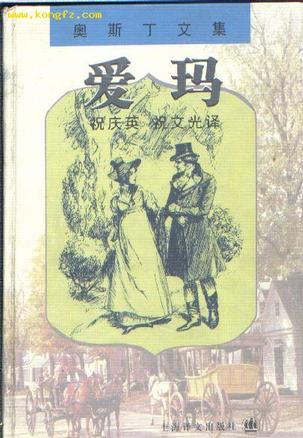Emma
Jane Austen
Of all Jane Austen's heroines, Emma Woodhouse is the most flawed, the most infuriating, and, in the end, the most endearing. Pride and Prejudice's Lizzie Bennet has more wit and sparkle; Catherine Morland in Northanger Abbey more imagination; and Sense and Sensibility's Elinor Dashwood certainly more sense--but Emma is lovable precisely because she is so imperfect. Austen only completed six novels in her lifetime, of which five feature young women whose chances for making a good marriage depend greatly on financial issues, and whose prospects if they fail are rather grim. Emma is the exception: "Emma Woodhouse, handsome, clever, and rich, with a comfortable home and happy disposition seemed to unite some of the best blessings of existence; and had lived nearly twenty-one years in the world with very little to distress or vex her." One may be tempted to wonder what Austen could possibly find to say about so fortunate a character. The answer is, quite a lot.
For Emma, raised to think well of herself, has such a high opinion of her own worth that it blinds her to the opinions of others. The story revolves around a comedy of errors: Emma befriends Harriet Smith, a young woman of unknown parentage, and attempts to remake her in her own image. Ignoring the gaping difference in their respective fortunes and stations in life, Emma convinces herself and her friend that Harriet should look as high as Emma herself might for a husband--and she zeroes in on an ambitious vicar as the perfect match. At the same time, she reads too much into a flirtation with Frank Churchill, the newly arrived son of family friends, and thoughtlessly starts a rumor about poor but beautiful Jane Fairfax, the beloved niece of two genteelly impoverished elderly ladies in the village. As Emma's fantastically misguided schemes threaten to surge out of control, the voice of reason is provided by Mr. Knightly, the Woodhouse's longtime friend and neighbor. Though Austen herself described Emma as "a heroine whom no one but myself will much like," she endowed her creation with enough charm to see her through her most egregious behavior, and the saving grace of being able to learn from her mistakes. By the end of the novel Harriet, Frank, and Jane are all properly accounted for, Emma is wiser (though certainly not sadder), and the reader has had the satisfaction of enjoying Jane Austen at the height of her powers. --Alix Wilber --This text refers to an out of print or unavailable edition of this title.
This is another case where a classic is being reprinted simply as a tie-in to a TV/feature film presentation. Libraries, nonetheless, can benefit by picking up a quality hardcover for a nice price.
Copyright 1997 Reed Business Information, Inc. --This text refers to an out of print or unavailable edition of this title.
The luxury of the unabridged edition requires a certain commitment. But a luxury it is. Jenny Agutter's reading is perfectly suited to the story, both in tone and pace. She brings out the comic insight that is the hallmark of Austen's stories, making one laugh out loud at times, so well has she caught the moment or the temperament of the characters. The genius of Austen's wit often depends, not on what is said, but on how it is said, and Agutter has given the perfect voice to this lighthearted classic, delicately differentiating each character's personality. A glorious way to experience the essential Austen. K.R. (c)AudioFile, Portland, Maine --This text refers to an out of print or unavailable edition of this title.
First published in 1816, is generally regarded as Jane Austen's most technically brilliant book. But that's not the reason to read it. Read it to see how a scheming heiress who is determined not to marry ends up embracing love and growing in maturity without dying or becoming impossibly insipid, the fate of so many nineteenth-century heroines. As her fourth novel was taking shape, Jane Austen noted "I am going to take a heroine whom no one but myself will much like." She was wrong. It is easy to love Emma Woodhouse. She is a snob, a meddler, and a spoiled child - she is also smart, funny, generous, and compassionate. Determined to control the arrangements of other people's lives, Emma takes on the self-appointed role of matchmaker in a world that grants little public power to women. Small wonder that Emma, who has a "mind lively and at ease," wastes her considerable creative powers dreaming up romantic scenarios that consistently and comically fail all reality checks. As in all of Jane Austen's works, the simple theme of courtship belies the complexity of her vision of human nature and of our need for power. Technical brilliance? Yes. Moral brilliance? Most definitely. -- For great reviews of books for girls, check out Let's Hear It for the Girls: 375 Great Books for Readers 2-14. --This text refers to an out of print or unavailable edition of this title.
"Jane Austen is my favorite author! ... Shut up in measureless content, I greet her by the name of most kind hostess, while criticism slumbers." ?EM Forster
From the Trade Paperback edition. --This text refers to the Mass Market Paperback edition.
